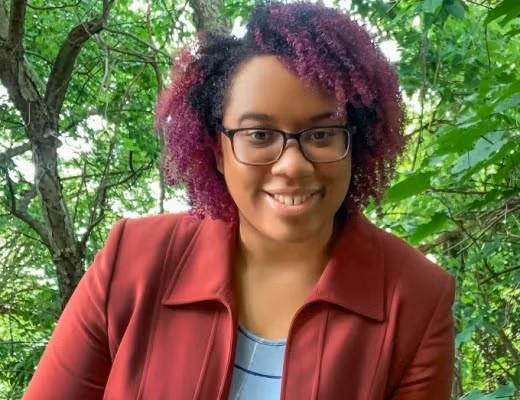
Pitt Students: The course number is PS 1555
As humans rely more and more on electronic devices to support their everyday activities, there are ever present warnings about the impacts such reliance has on human autonomy ranging from who owns and controls information networks, the inequitable impact of technology consumption on peoples and places, varying accessibility of technology around the globe, and the promises and limitations of technology in improving human health. By engaging in technology as a lens, this sequence of weekend micro-courses encourages students to examine technology as a system disproportionately impacting humanity by enabling and constraining human rights of groups of people around the globe. With a multi-disciplinary focus, the course invites researchers and practitioners from the University of Pittsburgh, Carnegie Mellon, and relevant fields more broadly.
In Fall 2025, the focus will be on the impact technology has on the future of schooling and work. This will include a discussion as to how technology can improve the efficiency and safety of the workforce through automation while also creating further divides between those who have educational access and those who do not. The effects of technology on education and the common language of the world, including how it impacts native languages and cultures, will also be discussed.
Learning Outcomes
- Identify and define the characteristics of technology’s positive and negative impact on humanity relative to education and work. [weekend worksheets]
- Identify varying perspectives of stakeholders on issues related to technology and its impact on humanity relative to education and work. [weekend worksheets/activities, identifying stakeholders assignment, final paper]
- Compare disciplinary approaches and perspectives on technology, humanity, and social justice in relation to education and work. [weekend worksheets]
- Compare perspectives of stakeholders on issues related to technology and humanity to understand how this impacts perceptions and actions on the issue, particularly as it is concerned in finding a just resolution. [weekend activities, identifying stakeholders assignment, final paper]
- Reflect on the level of influence varying stakeholders have or are denied in shaping actions on the issue of technology, humanity, and education and work. [weekend activities, identifying stakeholders assignment, final paper]
- Examine why the perspectives of stakeholders compete with one another, including how this leads to potentially varying impacts on humanity depending on actions and what actions are considered as viable. [weekend activities, identifying stakeholders assignment, final paper]
- Propose recommendations of action on an issue in relation to technology, humanity, and education and work that represents the perspectives of stakeholders to develop a resolution. [weekend worksheets/activities, and final assignments]
- Support proposed recommendations by developing a cost-benefit analysis, including how the recommendation(s) harm and benefit the varying stakeholders and its wider societal benefit. [final paper]
Pre-recording, Asynchronous Review Before Class: Course and Final Assignment Overview
Pre-Reads: Prior to class, students should review the entire syllabus and its policies, the engaging perspectives in decision-making proposal (final assignment) assignment and rubric
Pre-Class Brainstorm: Prior to class, students should review the list of topics and resources provided on Canvas. Students should select one topic and review the provided resources (or do their own research on the topic). If students would like to work on a topic that does not appear on the provided list of options, then students can reach out via email or Zoom office hours for approval.
Pre-Recording Quiz: This quiz will be due before midnight on Friday, Oct. 24. You should complete the Canvas quiz after reviewing the syllabus, final assignment and rubric, and watching the pre-recording overview of the course and final assignment
Friday, Oct. 24
- 5:00PM-5:15PM: Welcome Remarks and Overview of Course
- Session 1 – 5:15PM-6:40PM: Christopher Phillips, Associate Professor and Director of Graduate Studies, History, Carnegie Mellon University
- Session 2 – 6:45PM-8:10PM: Sarah Fox, Assistant Professor, Human-Computer Interaction Institute, Carnegie Mellon University
Saturday, Oct. 25
- Session 3 – 8:30AM-10:05AM: Group Activity: Analyzing Education and Technology Case Study
Note: Students arriving more than 5 minutes late will not be assigned to a breakout group nor be able to complete the assignment sheet associated with this activity. Please arrive on time to be assigned a group and case study. This activity will also ask students to actively talk with one another to complete the activity. Be sure you are in a space that you can unmute and be on camera to add to the conversation..
- Session 4 – 10:15AM-11:40AM: Angela E.B. Stewart, Assistant Professor, School of Computing and Information and Research Scientist, Learning Research and Development Center, University of Pittsburgh
LUNCH 11:45PM-1:00PM
- Session 5 - 1:00PM-2:25PM: Louis Hickman, Assistant Professor, Department of Psychology, Virginia Tech University; Visiting Scholar, Amazon; Senior Fellow, Wharton People Analytics, University of Pennsylvania
- Session 6 – 2:30PM-3:55PM: Annette Vee, Associate Professor, Department of English and Director of the Composition Program, University of Pittsburgh
- Session 7 – 4:15PM-6:00PM: Group Activity: Comparing Analyses of Education and Technology Case Study
Note: Students arriving more than 5 minutes late will not be assigned to a breakout group nor be able to complete the assignment sheet associated with this activity. Please arrive on time to be assigned a group and case study. This activity will also ask students to actively talk with one another to complete the activity. Be sure you are in a space that you can unmute and be on camera to add to the conversation.
Sunday, Oct. 26
- Session 8 – 8:30AM-10:15AM: Practicing Community Discussions: A Case Study Activity
Note: Students arriving more than 5 minutes late will not be assigned to a breakout group nor be able to complete the assignment sheet associated with this activity. Please arrive on time to be assigned a group and case study. This activity will also ask students to actively talk with one another to complete the activity. Be sure you are in a space that you can unmute and be on camera to add to the conversation.
- Session 9 – 10:30AM-1:00PM: Workshopping Your Stakeholder Profiles
Pre-Class Work: Prior to the Sunday morning session, students should have selected a topic from the provided list and reviewed the available resources (either those provided or your own research). Using your prior resources and brainstorms from the Part 3 portion of the Speaker Session worksheets, students will begin workshopping key stakeholders related to their topic. This will allow for feedback and provide a foundation of the next step of the Identifying Stakeholder Perspective assignment after the weekend.
Speakers for the course will include:

Christopher Phillips, Associate Professor and Director of Graduate Studies, History, Carnegie Mellon University

Sarah Fox, Assistant Professor, Human-Computer Interaction Institute, Carnegie Mellon University

Angela E.B Stewart, Assistant Professor, School of Computing and Information and Research Scientist, Learning Research and Development Center, University of Pittsburgh

Louis Hickman, Assistant Professor, Department of Psychology, Virginia Tech University; Visiting Scholar, Amazon; Senior Fellow, Wharton People Analytics, University of Pennsylvania

Annette Vee, Associate Professor, Department of English and Director of the Composition Program, University of Pittsburgh
The micro-course is open to all students and educators.
Pitt Students: The course number is PS 1555. This course requires a permission number that will be provided by contacting the instructor, Veronica Dristas, at dristas@pitt.edu.
This course will be facilitated by Veronica Dristas (Pitt) and Korryn Mozisek (CMU).
